Share
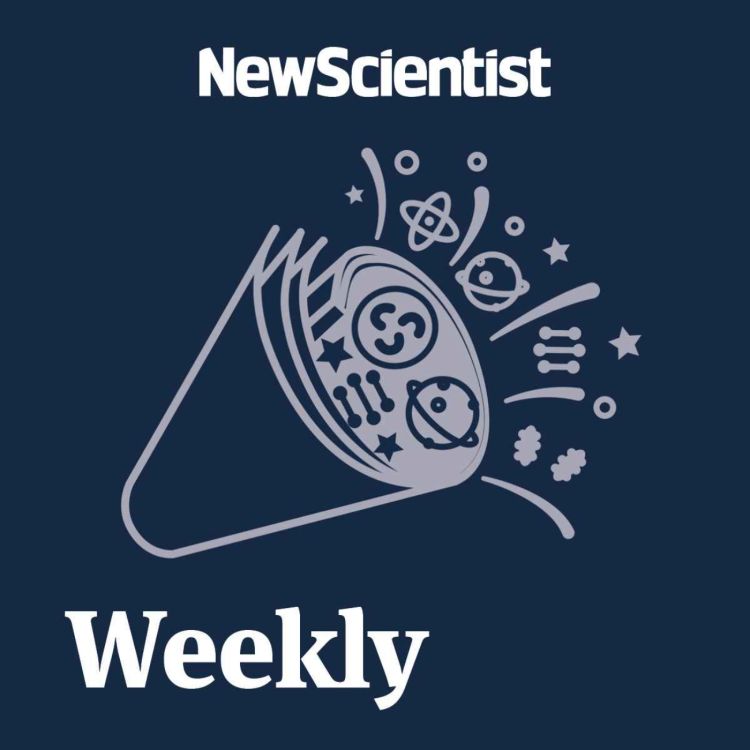
New Scientist Podcasts
Weekly: Woolly mammoth jerky; Google simulates the origin of life; food without farming
#258
Fancy a bite of woolly mammoth jerky? A beef-jerky-like fossil of this prehistoric creature has been discovered – a metre-long piece of skin still covered in hair. And the most amazing thing is that the entire genome has remained intact, giving more insight into these creatures than ever before. Could this help bring woolly mammoths back to life?
There is a way to make butter not from cows, not from vegetable oils or even microbes, but from pure carbon. And if you want a climate friendly way of producing a delicious spreadable fat, this may just be it. A company called Savor is using a process that can convert captured CO2 or natural gas into fatty acids.
The origin of life is a huge scientific mystery: how can something so complex emerge from inert and random molecules? Well, Google has created a simulation to figure this out. The company has used computer code to recreate the random ‘primordial soup’ of early Earth, with results that might baffle you.
When mammals breastfeed, calcium is stripped from their bones to make the milk, but their bones don’t get significantly weaker. How does that work? Well, a new, bone-strengthening hormone found in mice may have finally solved the long-standing mystery – and could benefit human health.
Plus: How our pupils change size with every breath; how cosmic rays could help protect financial markets; and how ancient Denisovan DNA may have helped the people of Papua New Guinea adapt to their environment.
Hosts Timothy Revell and Christie Taylor discuss with guests Corryn Wetzel, Madeleine Cuff, Matthew Sparkes and Grace Wade.
To read more about these stories, visit newscientist.com.
More episodes
View all episodes

9. Dead Planets Society: Can We Move the Sun?
31:53||Season 2, Ep. 9Earth and all the other planets in our solar system are being dragged on a joyride through the universe, as the Dead Planeteers attempt to move the sun.How slowly would you have to move the sun for its gravity to hold onto the planets? Would any planets end up flinging out of orbit? And which planets can we afford to lose along the way?To answer their many questions, Leah and Chelsea are joined by Jay Farihi, an astrophysicist at University College London.A big hurdle they first have to overcome is how exactly to move the sun in the first place. Luckily, the team has a variety of whacky ideas, including black holes. From sun sails to graviton generators to popping the sun like a balloon, hear the team’s unconventional methods for getting the job done and discover where in the universe their final destination is. Pillars of creation anyone?Dead Planets Society is a podcast that takes outlandish ideas about how to tinker with the cosmos – from punching a hole in a planet to unifying the asteroid belt – and subjects them to the laws of physics to see how they fare.Your hosts are Leah Crane and Chelsea Whyte.If you have a cosmic object you’d like to figure out how to destroy, email the team at deadplanets@newscientist.com. It may just feature in a later episode.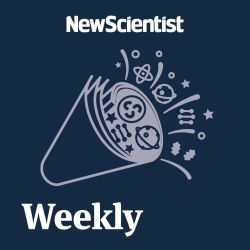
261. Weekly: The first life on Earth; Banana-shaped galaxies; When is smartphone use ‘problematic’?
31:08||Season 1, Ep. 261#261What was the first life on Earth like? Ancient fossils hint it could be a primitive kind of bacteria – but these 3.5 billion-year-old fossilised cells are controversial since they’re vastly bigger than any modern bacteria. But there’s now reason to believe that maybe, just maybe, they really are what they seem.Three game-changing drugs approved by the US for the treatment of Alzheimer’s disease may be less impressive than we first hoped. These are the first drugs to actually slow the progression of the condition – but they also come with risky side effects. Is the benefit worth the risk?Galaxies usually come in spiral or blob form, but it turns out there may be some that are shaped like… bananas. First spotted by the Hubble Space Telescope, we initially thought their shape was a trick of light. But the much more powerful James Webb Space Telescope is seeing them too. The problem is this doesn’t fit with our understanding of how galaxies form – it may be time for a rewrite.Do you ever feel addicted to your smartphone? Well, there’s a term for that – problematic smartphone use. The question is, what constitutes addiction and is your smartphone habit impacting you enough to be considered problematic? One group of researchers are working to find out, starting by looking at the link between problematic use and mental health in teenagers.The diversity of life on Earth may be best safeguarded on the moon. Parts of the lunar landscape are colder than anywhere on Earth, so it may be the best place to cryogenically freeze cells for things like fish, cows and even useful bacteria like those used in cheesemaking. But, as you might expect with the moon, such a biorepository faces some logistical challenges.Hosts Christie Taylor and Timothy Revell discuss with guests Michael Le Page, Alexandra Thompson, Alex Wilkins, Carissa Wong and James Woodford.To read more about these stories, visit newscientist.com.Find Dr Karan Explores here: https://www.drkaranrajan.com/podcast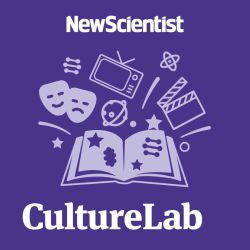
CultureLab: Carlo Rovelli on the link between quantum physics and world peace
28:17|Quantum theory describes the tiny building blocks that make up everything around us. It has made many successful predictions but could a new, more radical idea help us make better sense of the world around us? Could it even be the answer to creating world peace?Carlo Rovelli is an Italian theoretical physicist and writer behind the relational interpretation of quantum mechanics. His idea suggests that the fundamental building blocks of the universe are not particles or objects as many of us are taught in school, but relationships and interactions between them.In this episode, Rovelli explains why he believes we should all be applying his theory to our everyday lives and relationships. And how it could even help improve international relations. To read about subjects like this and much more, visit newscientist.com.
260. Weekly: Shocking source of deep sea oxygen; Alcohol really is unhealthy; ‘Green’ plastic downsides
31:54||Season 1, Ep. 260#260Most of us imagine plants when we think about the production of oxygen. But turns out, in the deep sea, metal-rich rocks also seem to generate oxygen. This surprising discovery suggests they may have a much more important role in their ecosystem than we originally thought – and is fueling more calls to ban deep sea mining, which would target these same rocks. Drinking a glass of wine once in a while can’t be that bad, right? Over the decades we heard that drinking a little alcohol might reduce your risk of heart disease, and even make you live longer, but a new review of the research has found serious flaws in these studies. So what’s going on with alcohol and our health?Physicists have been crashing atoms together for decades, in the hopes of creating heavier and heavier elements. And now, a new method to make the rare, super-heavy element livermorium may also pave the way towards making the elusive element 120, unbinilium. If successfully created, it would be the heaviest element on the periodic table. So what is this new method?Some disheartening news: our attempts to be more environmentally friendly might still make some things worse. Biodegradable plastics appear to damage soil and hinder plant growth more than conventional ones. What’s going wrong?Plus: How AI mathematicians are finally catching up to humans; how AI could spy on you through HDMI cables; and what caused the biggest cosmic explosion ever seen.Hosts Christie Taylor and Timothy Revell discuss with guests Madeleine Cuff, Michael Le Page, Karmela Padavic-Callaghan and Alexandra Thompson.To read more about these stories, visit newscientist.com.
8. Dead Planets Society: Can We Burn Uranus?
26:02||Season 2, Ep. 8What would it take to set Uranus ablaze? Is it even possible to burn it in the typical sense? If anyone can figure it out, it's the Dead Planets Society.Join Dead Planeteers Leah and Chelsea as they invite planetary scientist Paul Byrne back to the podcast, to join in more of their chaotic antics. This mission is less about destruction (though it’s definitely also about destruction) and more about advancing science. Uranus is an ice giant, one of the most common types of planets in the universe, so burning it could teach us a lot about the cosmos. The planet may also be full of diamonds - and the potential for treasure derails the team’s destructive intentions.Dead Planets Society is a podcast that takes outlandish ideas about how to tinker with the cosmos – from punching a hole in a planet to unifying the asteroid belt – and subjects them to the laws of physics to see how they fare.Your hosts are Leah Crane and Chelsea Whyte.If you have a cosmic object you’d like to figure out how to destroy, email the team at deadplanets@newscientist.com. It may just feature in a later episode.
259. Weekly: New human cases of bird flu; Sail away to Alpha Centauri; Sea slugs hunt in packs
26:11||Season 1, Ep. 259#259More people in the US are getting bird flu. Though numbers are small – just five new cases, all mild – every new case is a reason for concern. How and why is it being transmitted – and how is it being monitored?What if you could make a sailboat that’s pushed not by wind, but lasers? Breakthrough Starshot is a mission attempting to send a spacecraft to our nearest star system, Alpha Centauri, using such a lightsail. While lightsail designs have been too expensive and unworkable so far, a new prototype is looking promising.Climate change is threatening a key part of the global climate system. The Atlantic Meridional Ocean Circulation (AMOC) system transports heat and salinity between the tropics and the poles. Scientists have ongoing concerns about its stability, but it’s now showing signs of potential collapse much sooner than expected. And if it does shut down, the knock-on effects would be drastic.What makes a planet a planet? Defining this is what knocked Pluto off planetary status, but now one researcher has proposed a new set of criteria. Is the new method useful – and does it change which objects are considered planets?Believe it or not – sea slugs hunt in packs. A species of sea slug has been seen ganging up on brown sea anemones to avoid its poisonous tentacles. How are they capable of teaming up like this?Hosts Rowan Hooper and Christie Taylor discuss with guests Grace Wade, Alex Wilkins, Madeleine Cuff and Sophie Bushwick.To read more about these stories, visit newscientist.com.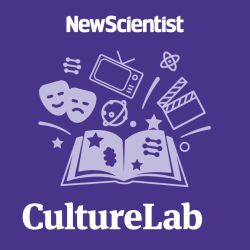
CultureLab: The incredible, intelligent abilities of plants with Zoë Schlanger
36:33|What if we told you plants can hear and see? And memorise information? And track time to adapt their pollination techniques? And even look out for their family members? These are just some of the remarkable behaviours plants are capable of – many of which we’re only just learning about now. Science journalist Zoë Schlanger’s new book The Light Eaters will make you question everything you currently assume about the green life around us, and even what “intelligence” can mean. In this episode, Schlanger walks us through some of the incredible abilities and behaviours plants employ to not only survive, but thrive – from orchids sexually deceiving wasps, to shape-shifting vines that flew under the radar of researchers for decades. And, she suggests, it might be time to rethink how we do science to accommodate the seemingly endless adaptability of plants. To read about subjects like this and much more, visit newscientist.com.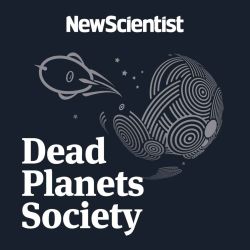
7. Dead Planets Society: Putting Black Holes Inside Stuff
24:14||Season 2, Ep. 7Primordial black holes are tiny versions of the big beasts you typically think of. They’re so small, they could easily fit inside stuff, like a planet, or a star… or a person. So, needless to say, this has piqued the curiosity of our Dead Planeteers.Leah and Chelsea want to know, can you put primordial black holes inside things and what happens if you do? Black hole astronomer Allison Kirkpatrick at the University of Kansas is back to help them figure this one out. And it turns out, despite being very small, these black holes are incredibly heavy, so ingesting and/or hugging them seems firmly off the cards - much to Chelsea’s displeasure.Dead Planets Society is a podcast that takes outlandish ideas about how to tinker with the cosmos – from punching a hole in a planet to unifying the asteroid belt – and subjects them to the laws of physics to see how they fare.Your hosts are Leah Crane and Chelsea Whyte.If you have a cosmic object you’d like to figure out how to destroy, email the team at deadplanets@newscientist.com. It may just feature in a later episode.